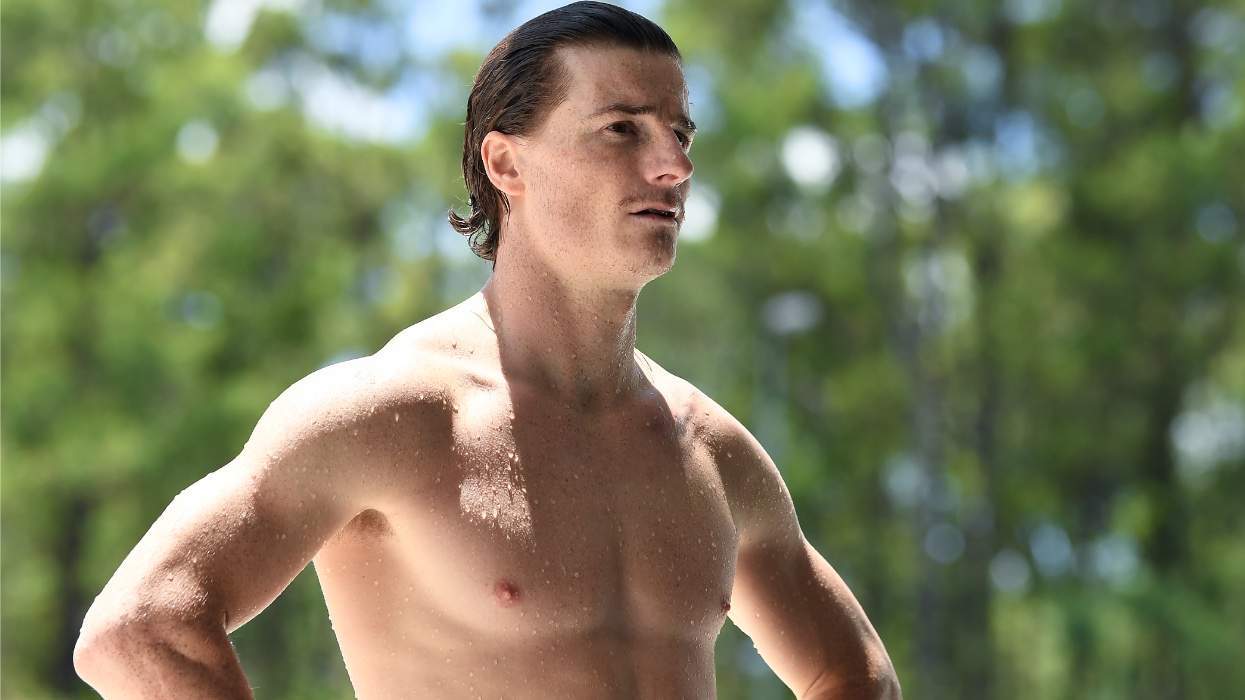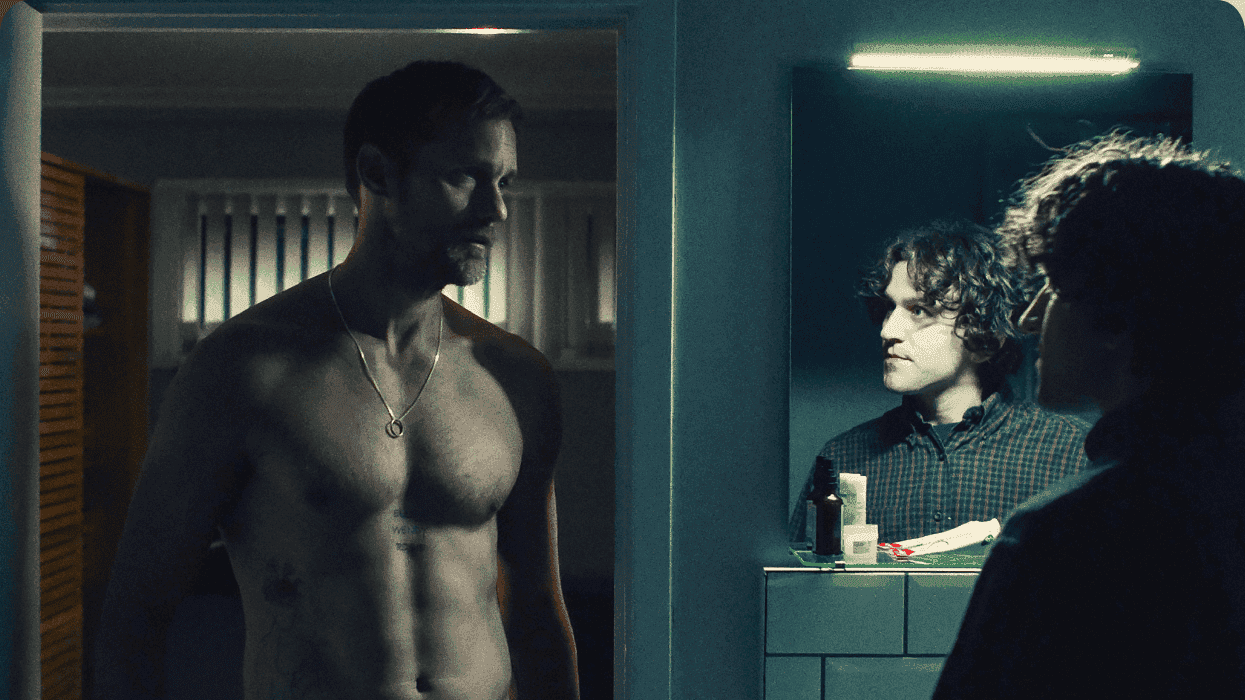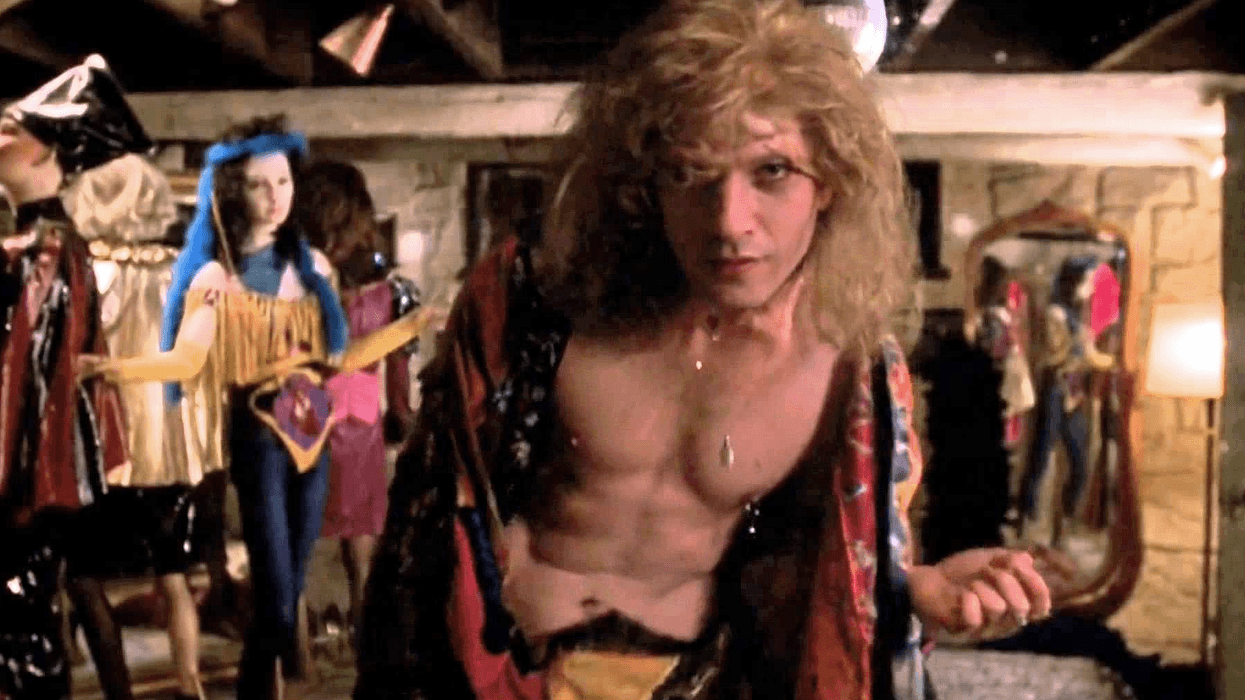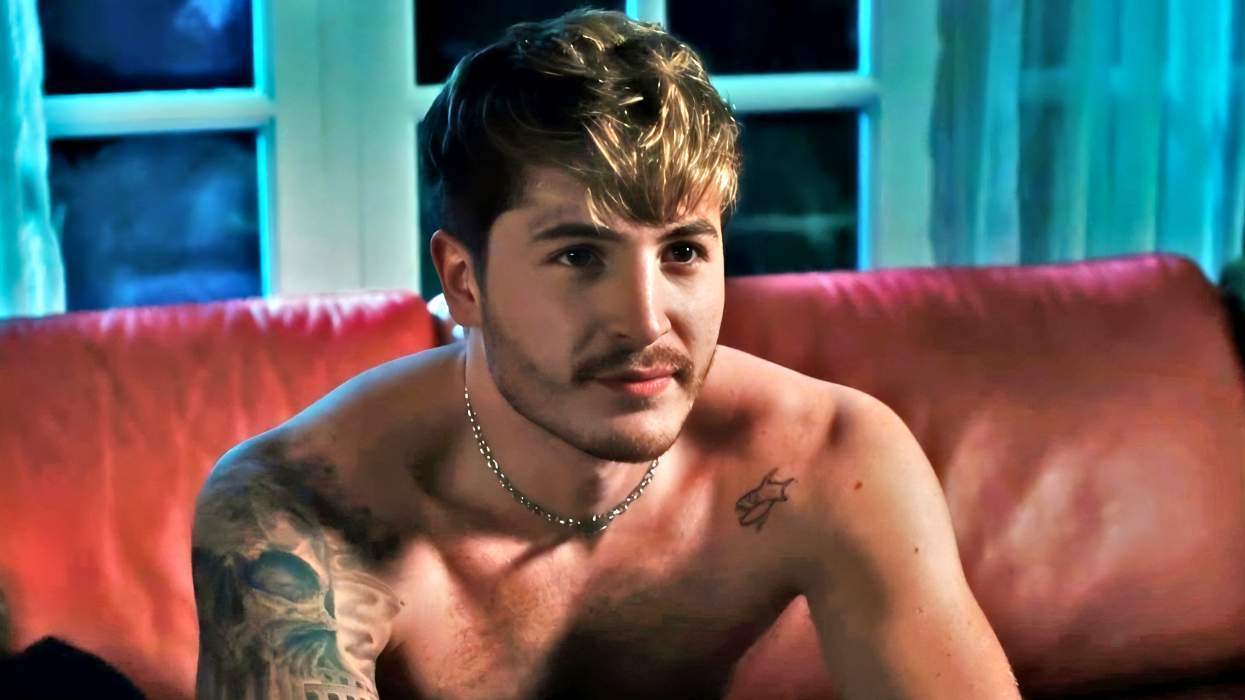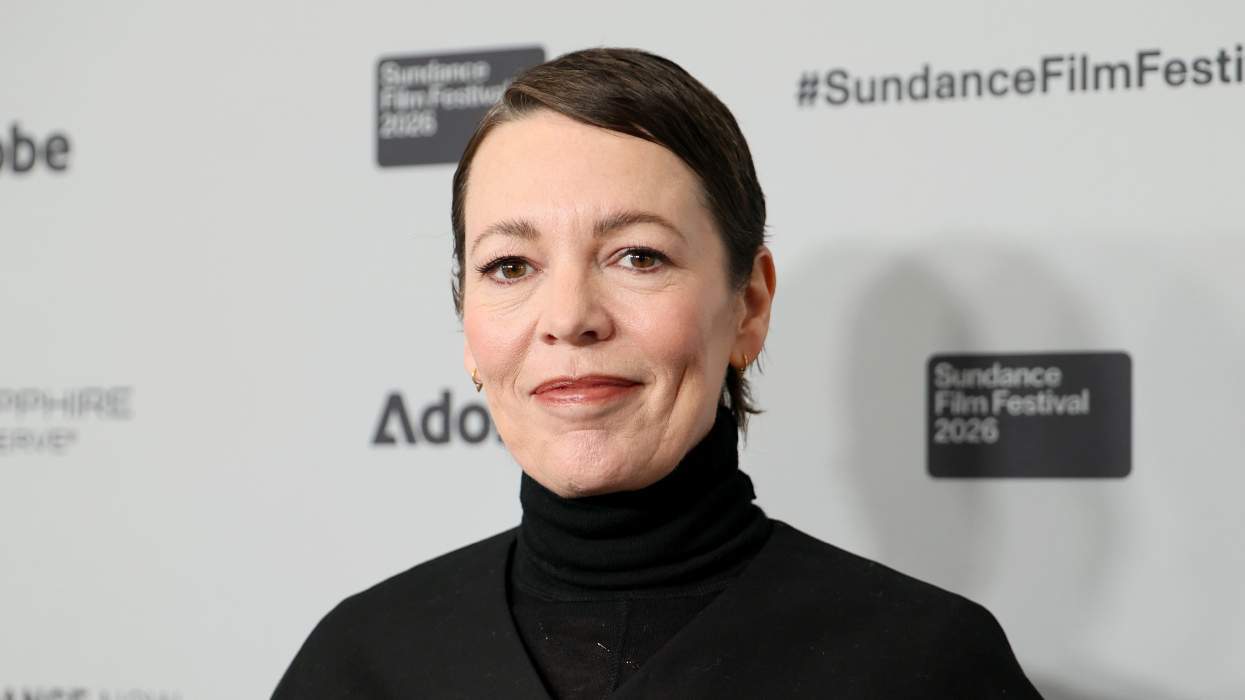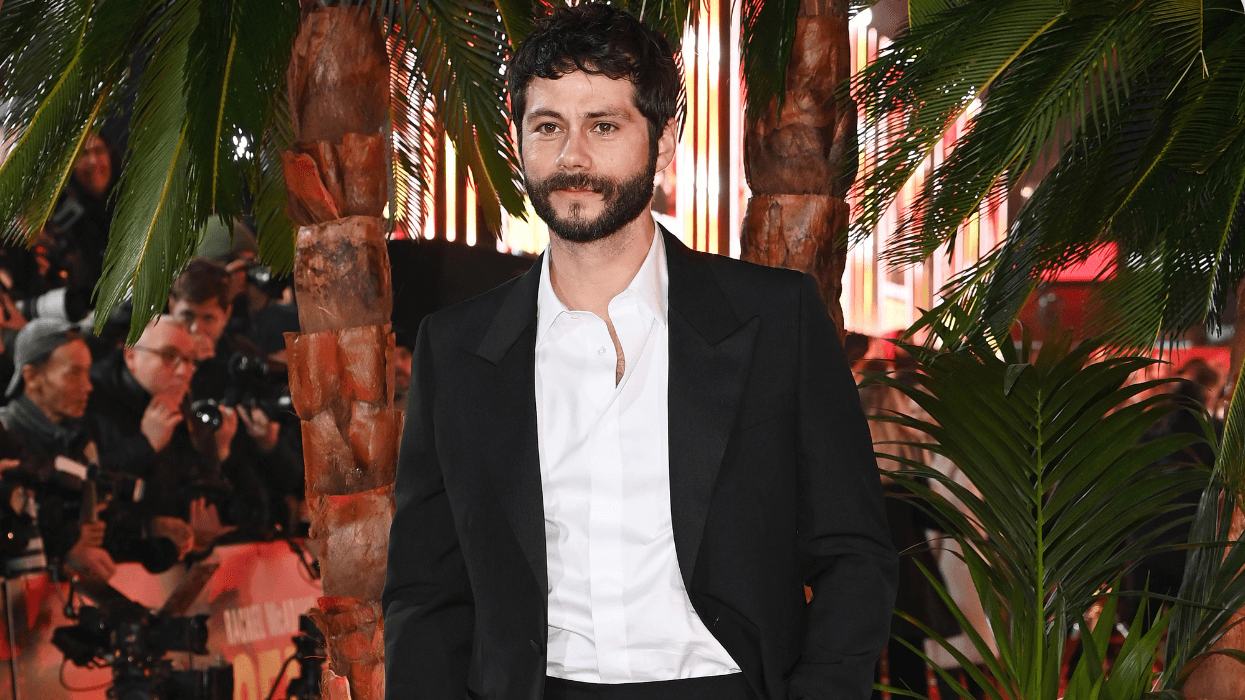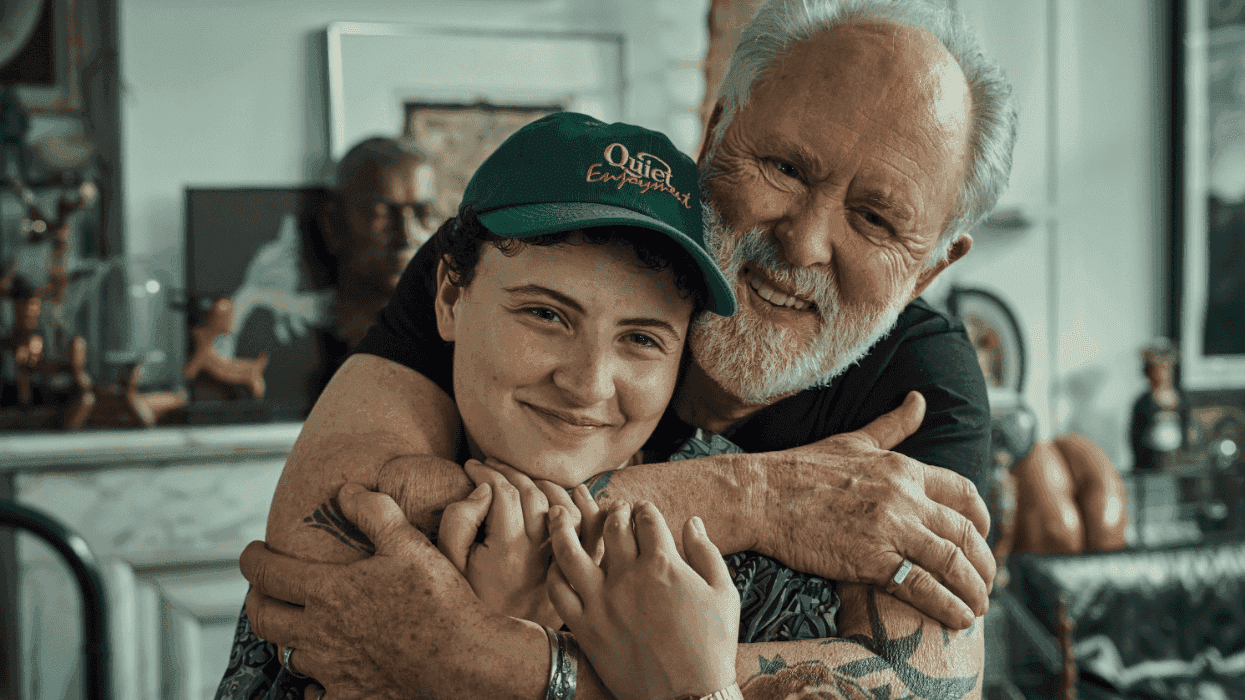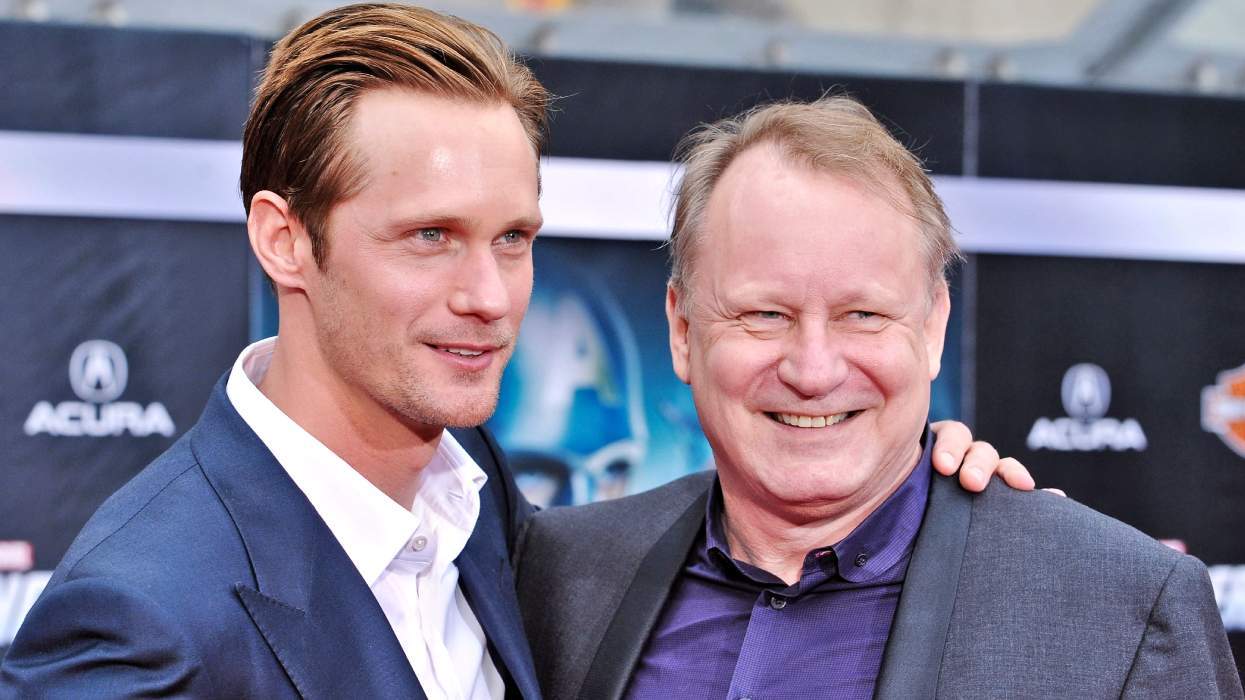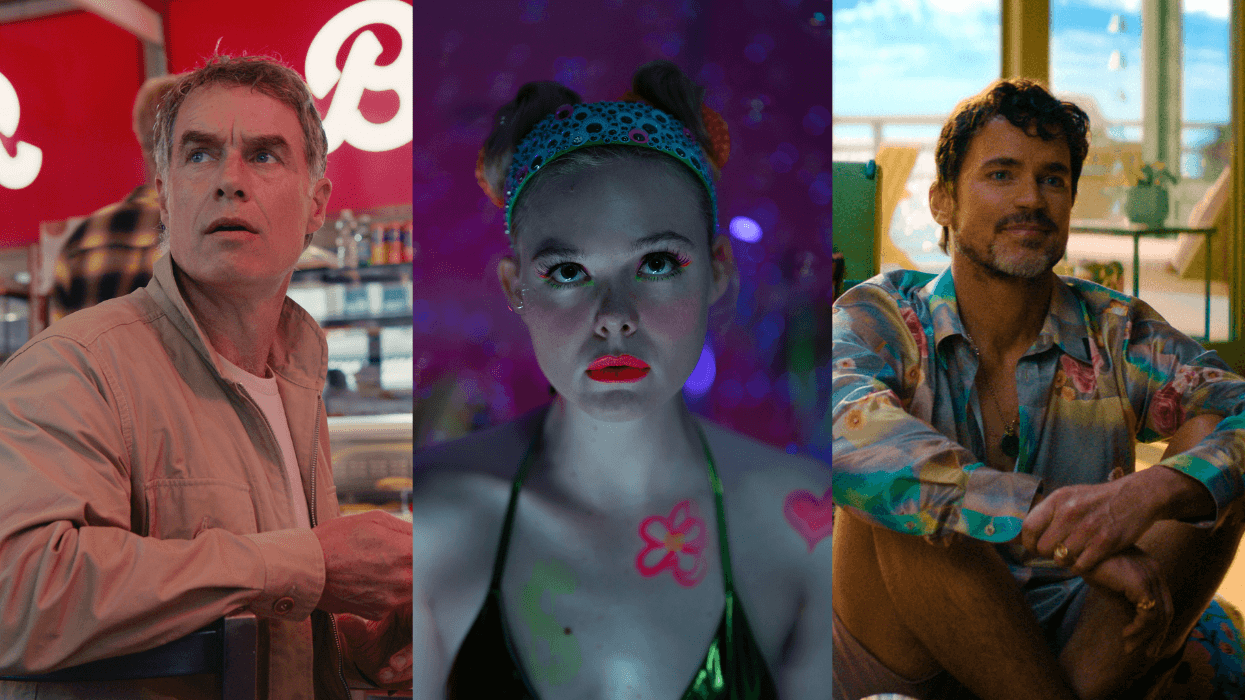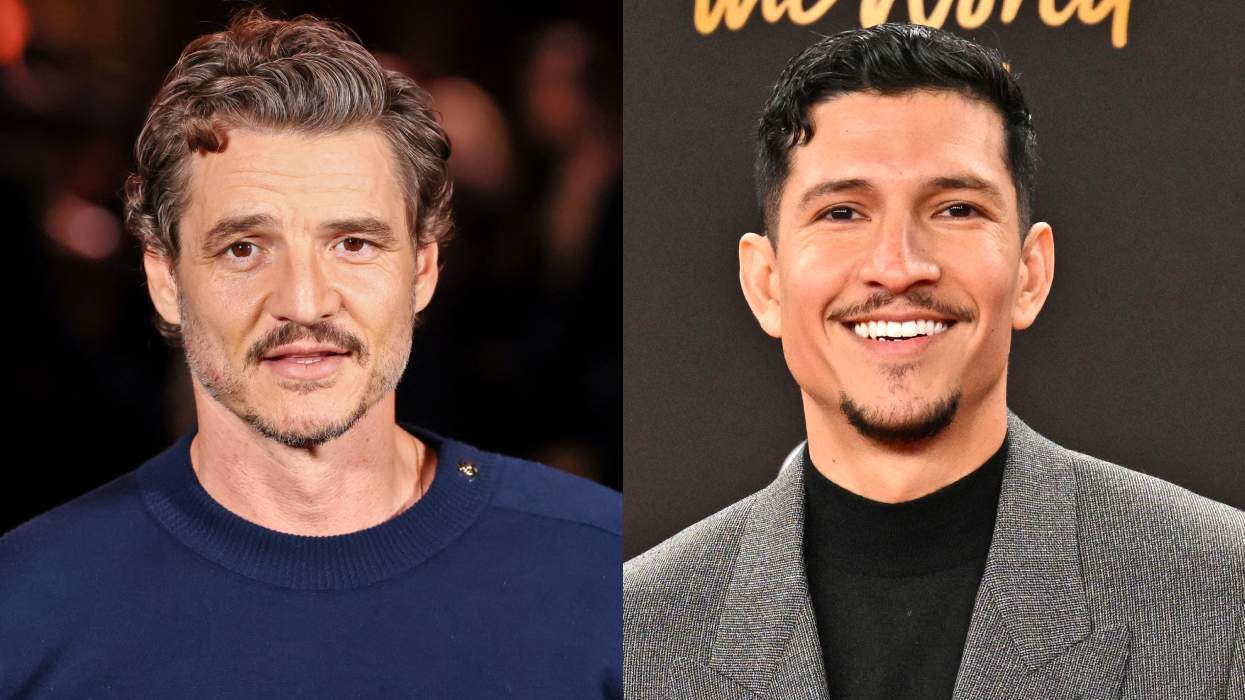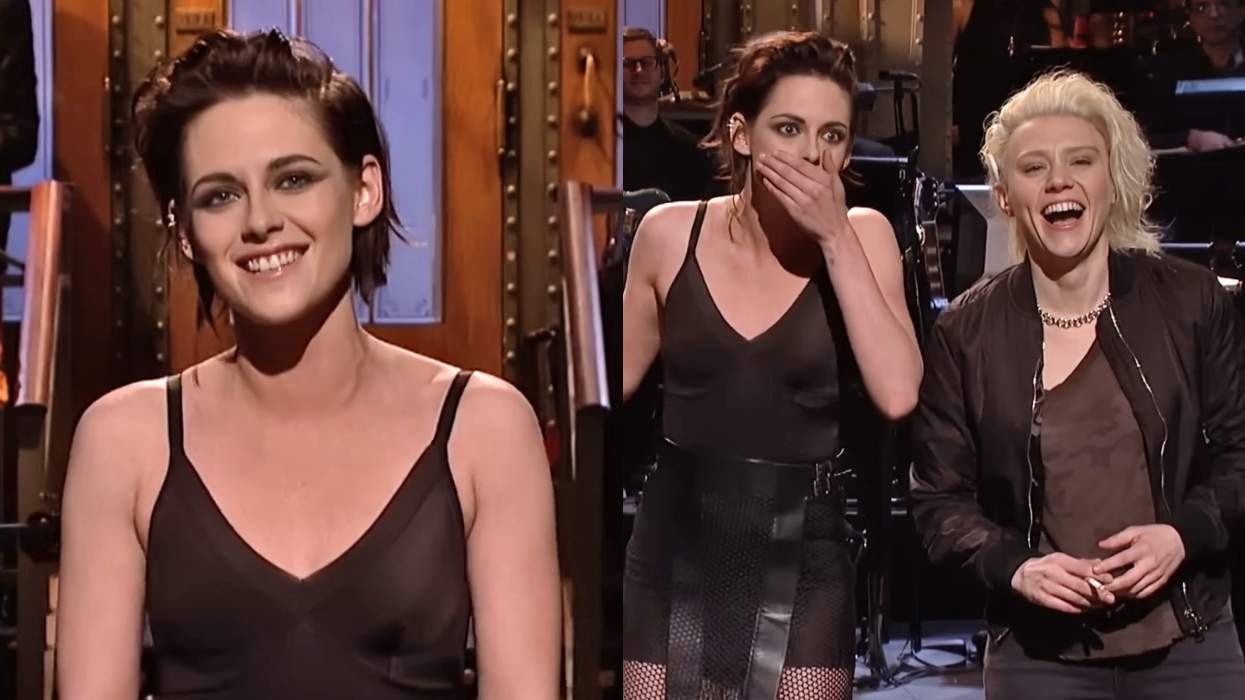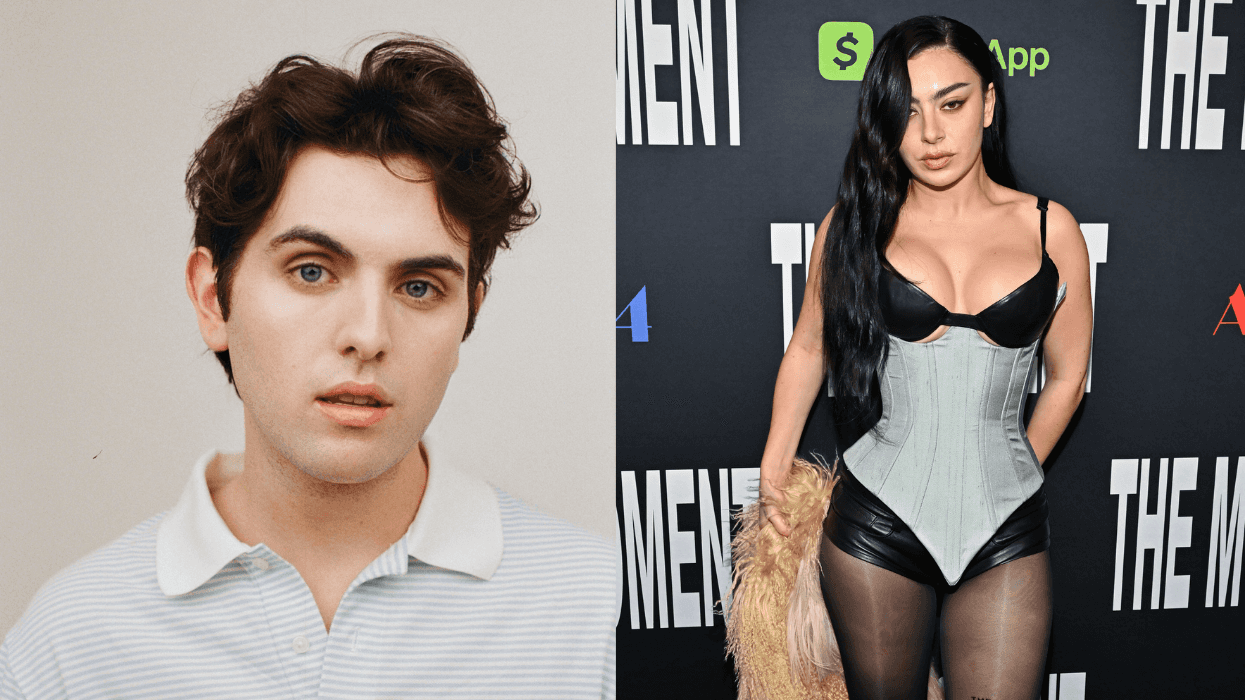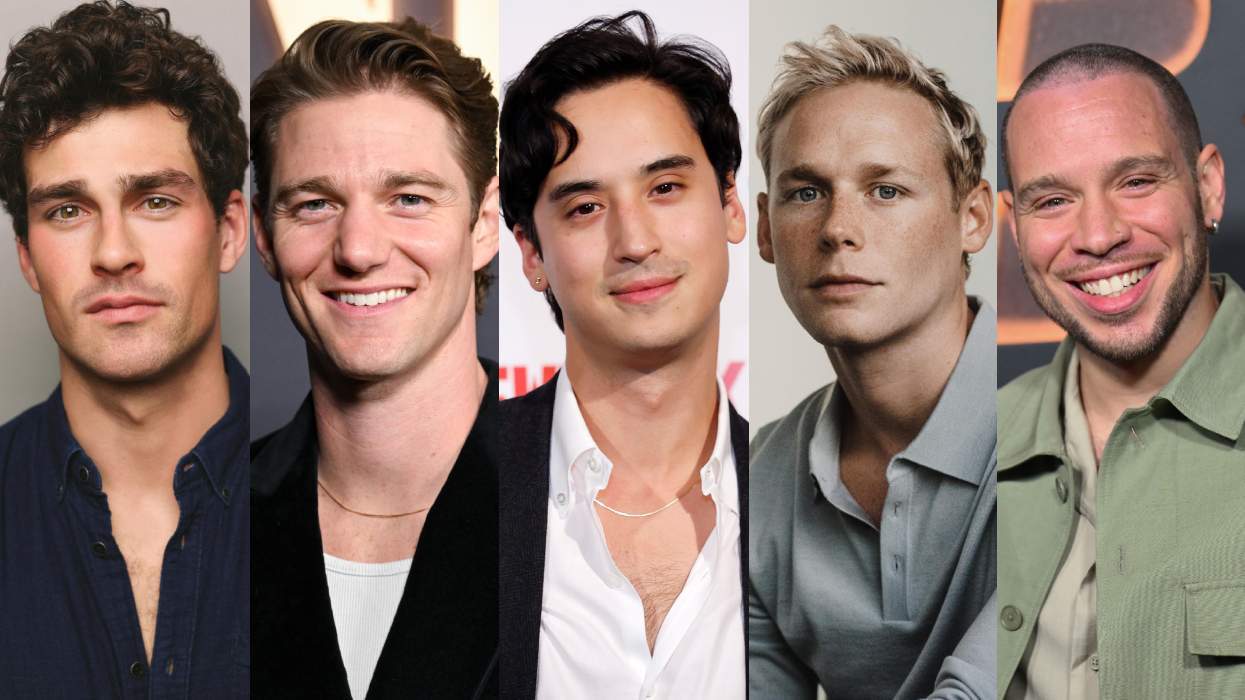Dominic (Felix-Antoine Duval) has a fetish for himself.
In director Bruce LaBruce's new film Saint-Narcisse, nothing turns Dominic on more than his own reflection and he spends much of his time taking Polaroid selfies. When his loving grandmother dies, he discovers a deep family secret: he has a twin brother who was raised by a depraved priest in a remote monastery. Dominic's selfie habit betrays a deeper longing for his missing half.
The new film follows Dominic as he discovers his lesbian witch mother and the fight to save his brother from captivity. Saint-Narcisse explores taboo subjects like twincest and the intersection of religious and sexual ecstasy in what's sure to become a heartwarming camp classic.
Out got to sit down with Bruce LaBruce to discuss what it's like to be the "King of Kink," his thoughts about all things pop culture, and the inherent gayness of the Catholic Church.
Out: Are you the "King of Kink?" I keep reading that you are.
Bruce LaBruce: You know what? A reviewer said that I'm the Canadian "King of Kink" and it's starting to stick.
Do you like it?
Well, they call John Waters the "Pope of Trash," so I like it. It's a bit regal, but that's okay. I mean, they could say Queen.
So if you're the King of Kink tell me what's more perverted: your new movie Saint-Narcisse or Ryan Murphy's Impeachment: American Crime Story?
Someone recently wrote about Ryan Murphy's horror versus the horror I've done with my zombie movies and exploitation horror in general. The critic argued that Murphy's a bit too PC horror because everything gets resolved with a bow at the end and B-movie exploitation movies are all about the subconscious. They're like an almost collective unconscious that expresses the zeitgeist and all of its confusion and anxiety. That's why a lot of the B-exploitation movies from the '70s were about post-Vietnam War trauma and stuff like that. So because Murphy's working in such a popular medium, it doesn't serve that same function as being this raw, unconscious expression of the fear and anxiety that exists.
What inspired you to write this story about twincest?
The working title of the movie was Twincest, but I changed at the moment I was walking into the first meeting to get financing for the film [laughs].
I love twin movies, for one thing, I think everyone should make a twin movie at some point, or a doppelganger movie. I was heavily influenced by The Parent Trap, the original one with Hayley Mills, and I love both Dead Ringer, the Bette Davis version, and Dead Ringers by David Cronenberg. But it's Brian De Palma that I was referencing most. He made two great incest-themed films in the '70s, Sisters and Obsession, so I was thinking of those.
I've known twins in my life. I grew up in school with twins and my best friend in university had an identical twin. With her especially, they have this weird psychic attraction. I'm not a very mystical person, but it seemed like if one was in trouble, the other one knew about it and could sense. That's always fascinated me and I just wanted to transpose it onto the misconceived idea that people have about gays, that we're all completely incestuous, like pedophiles and narcissists. Whatever horrible things they think. In this case, instead of twincest being just a porn fetish, I tried to make it into a love story about two characters completing each other. So it's almost a positive take on narcissism and twincest. Trying to understand that and investigate it more than just saying, 'Oh, it's a horrible perversion.'
Do you see an artistic difference between the movies and porn you create?
It's weird, it almost feels like you're doing the same thing, but you're on a different side of the fence. Surprisingly to me, there is still a big divide between the porn industry and the mainstream film industry, or the porn industry and the fashion industry. It's still a glass ceiling, still not a lot of people are allowed to cross over and do both, which I think I'm sort of allowed to do. Some of it is just banal, like in porn, the sex scenes are much longer. I can put an explicit scene briefly in more of an arthouse film, and it's not considered porn. So it's almost like porn is nebulous. It's like an 'I know it when I see it' kind of thing. But to get this project financed, I had to go into the meeting and immediately explain for ten minutes explaining that it was not a porn movie.
It's pretty clear in the movie that you know religious history even down to the details of the cross you use. What is your relationship to Catholicism?
I first started investigating it. I had a photo show in Madrid in 2012 and somebody threw an explosive device through the window, which thankfully didn't go off. Even before the show opened, it was a big scandal in Spain, and the mayor of Madrid tried to have it shut down, and there were Christian protests outside. So that's when I really understood the power of this imagery. Because this show is an investigation about the intersection of religious and sexual ecstasy, and how in Catholicism and in the lives of the saints, they're interchangeable. The lives of the Catholic saints are full of fetish and self-flagellation, self-abnegation, with a sexual connotation of S&M. So that wasn't a hard connection to make.
For me, Catholicism is so Baroque and sexualized. We all know there's a whole parallel gay hierarchy in the Vatican, which I've experienced secondhand by being in Italy and talking to people and there's a lot of higher-ups who are in relationships. They're like boyfriends who are elders in the church. It fascinates me that it's such a gay religion.
Men with shaved heads show up a lot in your work. They've been racists, zombies, and here they're monks. What's your interest in exploring different types of skinheads, so to speak?
I had a boyfriend who was a perfectly leftist guy, more along the line of suedeheads in England, like new wave. He was a hustler as well and bisexual, and we dated for a while and then broke up. Later I ran into him and he turned into a neo-nazi skinhead. He ended up beating me up and I never saw him again. But in a weird way I was still sexually attracted to him and it developed into a weird fetish, but my movies are more about trying to convert those kinds of people. I'm into them aesthetically, and even into domination and submission, but at the same time I've always tried to reform them and in terms of their political beliefs.
The other day you tweeted about the Met Gala, saying that everything that's maximal isn't automatically stylish or aesthetically justified. Will you elaborate on that and maybe give some examples of what you're talking about?
I wrote an article about Susan Sontag's essay "Notes on Camp," which later inspired the Camp theme at the Met Gala. I don't think Sontag gave it its proper due, especially in queer terms. I don't think she understood how essential the camp sensibility is to queer identity and the history of gay representation and gay identity. And that it's a political invention, almost like a secret language that's shared by a previously marginalized group.
I thought the Met Gala's camp theme was straight camp. In a way, a lot of straight people don't understand camp. They know the obvious signifiers of camp, but they don't know how to integrate it into a proper style or statement. That's just my opinion.
These days, I think in terms of fashion and style, everyone's just throwing everything in but the kitchen sink. You could imagine a model walking down the runway with a kitchen sink on her head, there are no boundaries. You could make a kitchen sink work, but it's how you do it. It has to be a particular integration of references. You can't just throw all these references together willy-nilly and expect it to work or make a statement. It has to be more conscious and more integrated with your own personal sense of style. Not just these obvious signifiers of excess and maximalism.
Talking about straight camp, there's a new Sopranos movie coming out. Would you call it straight camp?
I would say that it's good straight camp. Because they get it. Especially that famous ending with the song that plays on the radio. I think that was a brilliant choice and to leave everything up in the air and ambiguous. There is good straight camp, as well.
Let's talk about bad straight camp. The other day you tweeted some shade about Wes Anderson. Do you think his movies fall into the maximal category of straight camp?
I think he goes into the twee category. To me, it's a bit too precious. You could call it bad straight camp because it's so formally rigorous, but to a degree that it's almost too perfect. It seems hermetically sealed to me and nothing is ever out of place. It really is more of the aesthetic than the movies themselves that I find alienating and the fact that there's a sameness to all his work. It's the same tone all the time. I'd love to see him try to do a straight drama or a genre movie. But that's just my take. Don't listen to me.
Saint-Narcisse is now playing in select theaters.
RELATED | Blue Bayou Is Authentic, Emotional, & Just What We Need Right Now



